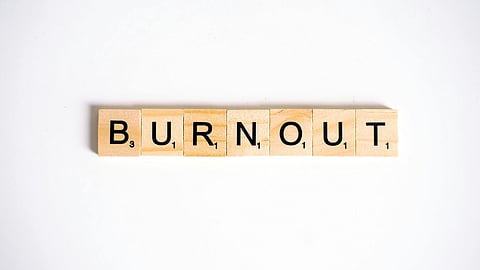
- LIFESTYLE
- FASHION
- FOOD
- ENTERTAINMENT
- EVENTS
- CULTURE
- VIDEOS
- WEB STORIES
- GALLERIES
- GADGETS
- CAR & BIKE
- SOCIETY
- TRAVEL
- NORTH EAST
- INDULGE CONNECT

Not long ago, the internet’s favourite buzzword was healing. Whether it was meditating at 6 am, swearing off gluten, or unblocking your chakras via sound bath, ‘working on yourself’ was practically a second job. But lately, a new wave is building—one that’s less about inner peace and more about quietly closing the tab on that breathwork Zoom class. If you’ve felt inexplicably drained by self-care routines that once thrilled you, you’re not alone. Welcome to wellness influencer burnout—the fatigue of being perpetually ‘healed’.
It started with good intentions. The pandemic forced many of us to turn inward, sparking a mass obsession with mental health, physical wellbeing, and all things self-actualisation. Wellness influencers blew up on social media—sharing everything from their green juice recipes to shadow work journals. Suddenly, healing wasn’t just private; it was performative. If you weren’t deep-diving into your trauma via tarot or microdosing mushrooms to overcome generational wounds, were you even growing? But the thing about always striving to be your highest self? It’s exhausting. When self-care becomes a to-do list of cold plunges, affirmations, therapy homework, and ‘gentle productivity’, burnout starts to creep in.
The internet’s version of wellness is often highly curated. It looks like neutral-toned smoothie bowls, journal prompts in perfect calligraphy, and expensive wellness retreats. But real healing? It’s messy, non-linear, and doesn’t always look good on Instagram. The pressure to maintain a ‘soft life’ aesthetic while battling actual anxiety, hormonal imbalances, or burnout often leads people to feel like frauds.
Plus, the emotional labor of ‘staying healed’ in front of an audience—especially for influencers—is immense. Constant vulnerability is marketed as authenticity. But it often blurs boundaries between public performance and private healing.
There’s also a darker side: over-pathologising normal emotions. Every bad day becomes a sign of unhealed trauma. Every fight with a partner requires deep psychological excavation. It’s overwhelming. We’re starting to see a subtle rebellion. Online, phrases like ‘healing fatigue’, ‘rest as resistance’, and ‘rejecting the wellness grind’ are trending. Some influencers are swapping sunrise yoga reels for honest posts about skipping meditation and binge-watching reality TV. Instead of perfecting themselves, more people are leaning into maintenance mode—focusing on stability, not transformation. That might look like saying no to spiritual bootcamps, skipping journaling for a nap, or choosing therapy just once a month. Growth doesn’t have to be public. And healing isn’t a race—it’s a human, often boring, sometimes beautiful process.